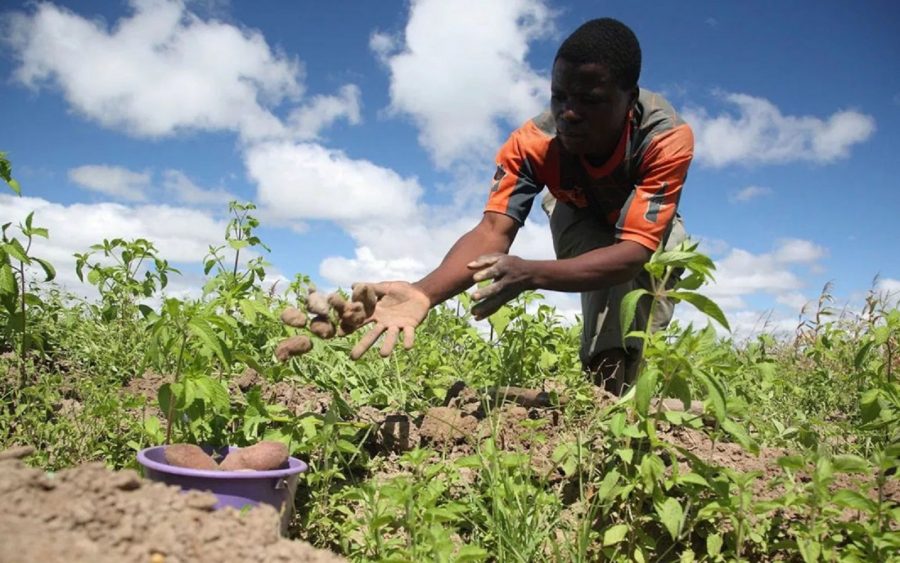If the Nigerian agricultural sector is to be properly developed, then, the Federal Government may need to halt the monthly Federation Account Allocation Committee (FAAC) disbursements distributed to the 36 state governments and Abuja.
This is the view expressed by the Vice President of Nigeria Agribusiness Group (NABG), Mr Emmanuel Ijewewe, in an exclusive chat with Nairametrics, during an agro stakeholders’ conference, Meet the Farmers Conference, held at the Intercontinental Hotel, in Lagos. The event was organised by Crenov8 Consulting and tagged “The Future of Agribusiness”.
Allocations made State Governments lazy
According to him, the development of the Nigerian agricultural sector depends not on the Federal Government (who has no land for farmers), but on the State Governments. However, most of the 36 states are not ready to develop their agricultural sector, due to the monthly revenue allocation they receive from the federation account. The ‘cheap’ revenue has made them complacent because the monthly allocation seems like a windfall to the states since it is not generated by them.
However, if the Federal Government decides to halt the distribution of revenue allocation, the second-tier governments will have no choice than to focus on how to improve their Internal Generated Revenue (IGR), in order to survive. This drive will force them to support farmers to boost their produce and generate revenue, in order to make the farmers taxable.
He explained
“Many of the state governments are still getting too much from the Federal Government, if you wipe that out, when they go in for their IGR, they will help farmers to put themselves in a position where they will be making profits and, therefore, able to pay tax.”
How the Government can improve agriculture
Meanwhile, governments can help farmers in several ways, in order to boost their produce and make them profitable for taxation.
- Little knowledge or information to the farmers can make a whole lot of difference in their production outputs.
- Governments can invest in the construction of greenhouses to protect agricultural produce and multiplies them.
- The government should make agricultural funds accessible to farmers easily through agencies like Nigerian Export-Import Bank (NEXIM Bank), Bank of Agriculture (BoA), etc.
- Agricultural and farm inputs like fertilizers, tractors etc can be subsidised by governments at various levels, so as to assist peasant farmers, who may not be able to afford these necessary inputs, at the beginning of planting season.
- Governments should make available technology-improved seedlings, hybrid breeding, hybrid seeds etc.
Kebbi State as an example
There is a popular saying that, “if you give too much money to your children, they may not go far in life.” That seems to be the situation with many State Governments, who despite the availability of arable lands suitable for several agricultural products in their domains, still prefer to look away and focus on their meagre monthly allocation from Abuja.
No one could have believed that Kebbi State has the potential to generate N150 billion from rice cultivation alone. The Kebbi State Governor announced in August that the state generated a revenue of N150 billion from the sale of its local cultivated rice in 2017. Meanwhile, data from the National Bureau of Statistics reveals that Kebbi received FAAC allocation was only N40.08 billion from January to December 2017.
Land is the true wealth
The above research has shown that, the true wealth of each state in Nigeria is the farmers. State Governments need to realise this fact, in order to harness the huge potentials in the agricultural sector and subsequently increase their IGR.
If Kebbi State can generate N150 billion from the sale of locally cultivated rice in one year, then, states like Benue and Plateau regarded as the food baskets of the nation with more fertile lands can generate more; only if their governments can focus on the development of the agricultural sector.
According to NBS, agriculture contributed 22.86% to Nigeria’s real Gross Domestic Product (GDP) in the second quarter of 2018. If states want to fully harness the huge wealth deposited on their lands, they need to return to the era where agriculture was the mainstay of each region’s economy, contributing over 50% to their GDP.
As at now, there are about 14 million cows in Nigeria, but we still import 96% of the milk we drink. With 14 million cows, Nigeria has no excuse for not having enough milk processing factories, to process milk for local consumption and exportation. Agricultural opportunities should be maximised to create wealth.











